I did some doomsaying last night, and it needs following-up, wrapped around the idea of “imagination”.
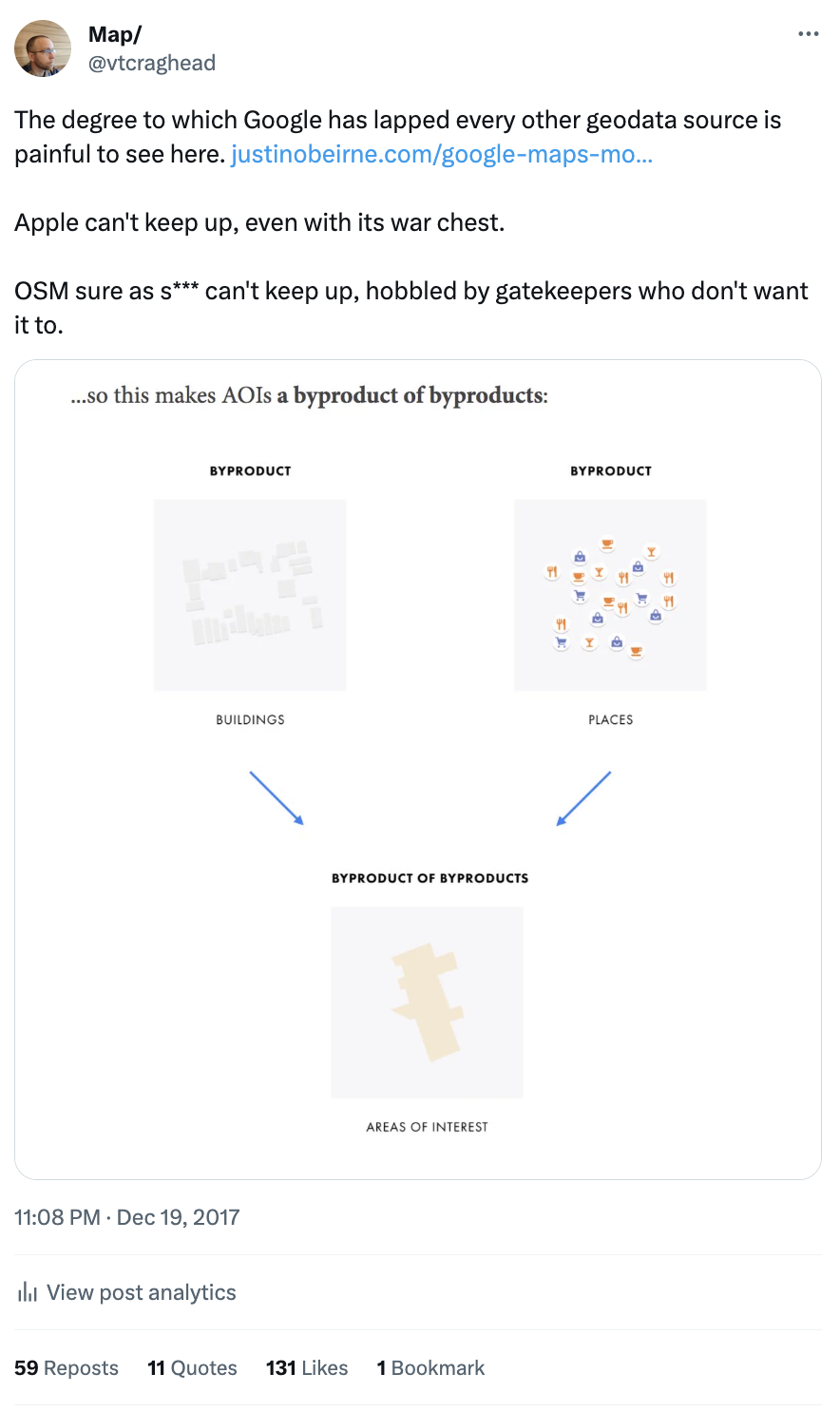
Google has been the mapping incumbent for a decade. They’ve surprised everyone before with their ability to build a smart, disruptive (ugh) map hack and then capitalize on it. But the sort of long-view thinking Justin exposes here is way beyond what I (a lowly map-saltminer) was imagining. Here’s what I honestly thought Google was up to over the past ten years to keep their edge:
- Hire thousands of analysts, to pore over and digitize . . .
- A big pile of satellite and aerial imagery, while
- Manually ground-truthing addresses with these nifty Streetview cameras, and
- Hiring thousands of additional analysts/salesfolk to manage a large DB of POIs.
Bonus, “Wow, they’re on the cutting edge”, imagined-Google-activities:
- Build custom tools for the 1000s of analysts (“Looks like JOSM!”)
- Buy satellites instead of imagery (“So forward-thinking!”)
- Experiment with auto-extracting features (“We’ve been trying since 2002!”)
I assumed these things because this is what everyone else has been up to, to one degree or another. Mapping the world is a cumbersome, resource-intensive, largely-manual process. Whew, I’m tired and my hand hurts from all the digitizing.
Reader, my imagination was puny.
What Justin makes clear is that Google has vertically-integrated their ubiquitous technology in ways that seem handed down from Carto-Olympus. Google bought satellites (& probably planes & helos), sure, but the buried lede is that they’ve NAILED DOWN the machine intelligence needed for feature extraction. Their long experience in ML, parallelization, & data organization likely let them brute-force this hard problem.
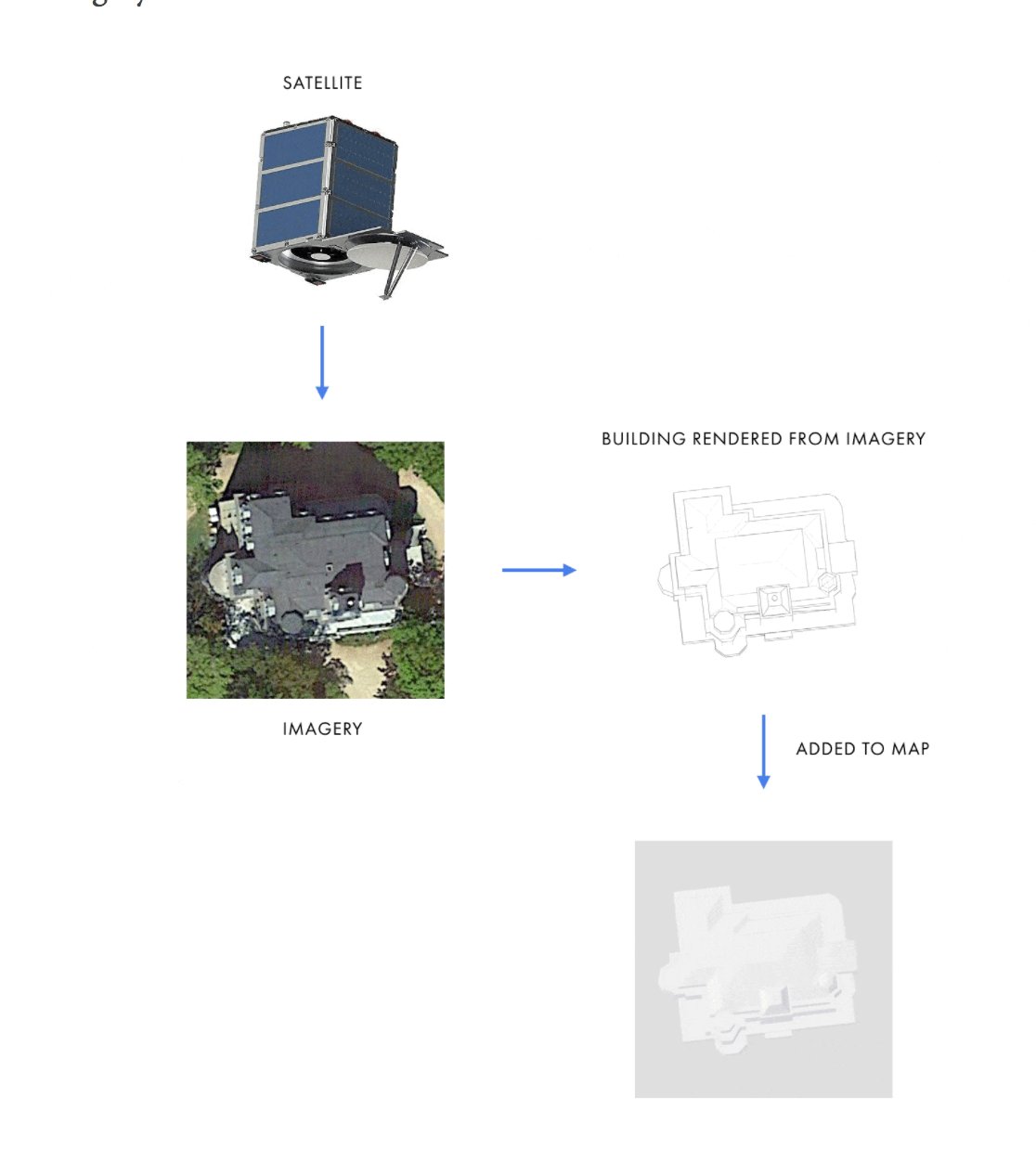
Sidebar: This is a HARD goddamned problem - one that I’ve worked on - and so this point impresses the hell out of me (and makes me jealous, but hey).
Google also hired lots of analysts, sure, but they’re not likely to be the tip of the mapping spear. Instead, that would be you and me, training a collection of algorithms with our phones in a mad swirl of telemetry and aggro crowdsourcing.
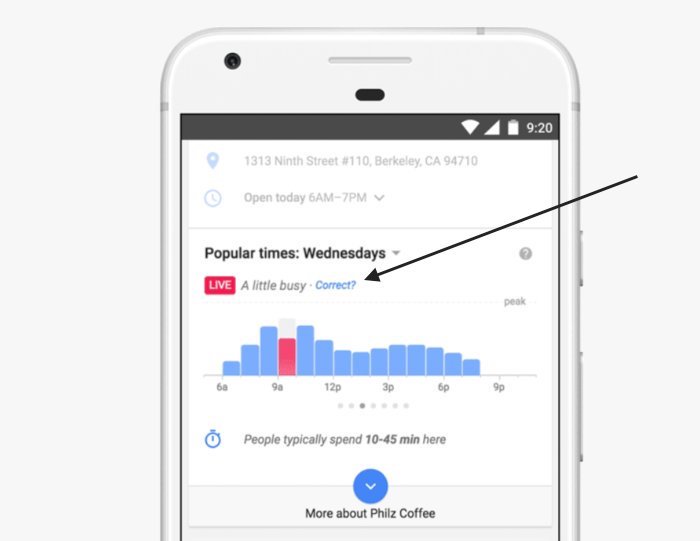
Google has a huge team grooming their “Places” dataset, sure, but those entries aren’t all recorded by someone sitting next to a phone, waiting for Papa Luciano to call in with the location of his pizzeria, because Google has nailed down that type of feature extraction as well.
And most importantly, they’re not doing all this in a vacuum, and it’s not just for maintenance. Google is integrating these datasets to automate the creation of other datasets, and god knows what else.

They’re doing these things in a properly-imagined effort to map our world at the highest spatial, temporal, and social resolutions we’ve ever dreamed of. (Contact your local Borges or Saramagó enthusiast today)
(FOR PROFIT)
And at this point I need to take a step back and say again that this is all sort of awe-inspiring. I am amazed at the grandeur of it all. I’m envious, because my own imagination was only nibbling around the edges of this holistic approach. I’m also frightened. This is a lot of power, and it’s concentrated by a company that has built some of the most restrictive walls in the business around its data and services.

I’m frightened, but in a bleak-comedy kind of way, when I consider how far behind the competition is, and how little they collaborate. Apple? HERE? Uber? How many smart folks are doing the carto-labor of Sisyphus in back rooms right now? I’m frightened when I consider that my own favorite windmill-tilt-of-a-project - Openstreetmap - is eating itself alive instead of getting ahead of this tidal wave.
The Google context makes the nonsense politics of OSM . . .
- Driving away newcomers and force multipliers
- Alienating whole demographics
- Dismissing any technology more elaborate than a GPS and a bicycle
. . . frustratingly insignificant but also completely defeating.
I’ve seen glimmers of Google’s approach in the OSM world . . .
- Feature extraction by the Development Seed crew
- Mapbox fusing sources for QA/QC
- Facebook literally donating data
. . . get shot down by an unbendable - if surficially-admirable - John Henry mentality.
But Michelle Lee has a better perspective than I do - we can’t stop waving the flag for openness:
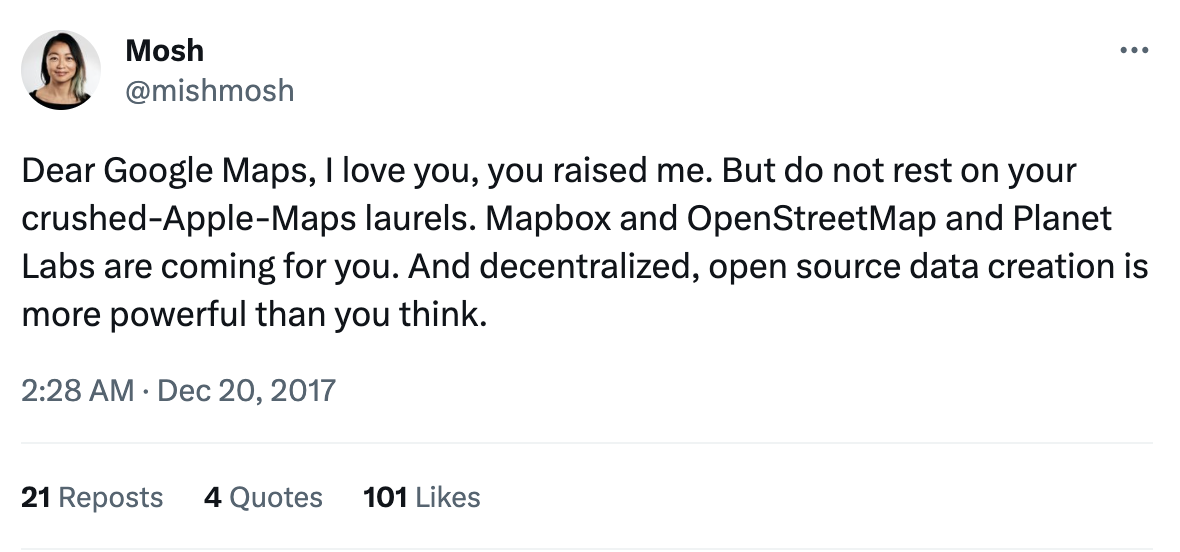
. . . and indeed, Tom Lee thinks it’s the only sustainable approach (People not named “Lee” also have good opinions, I know):
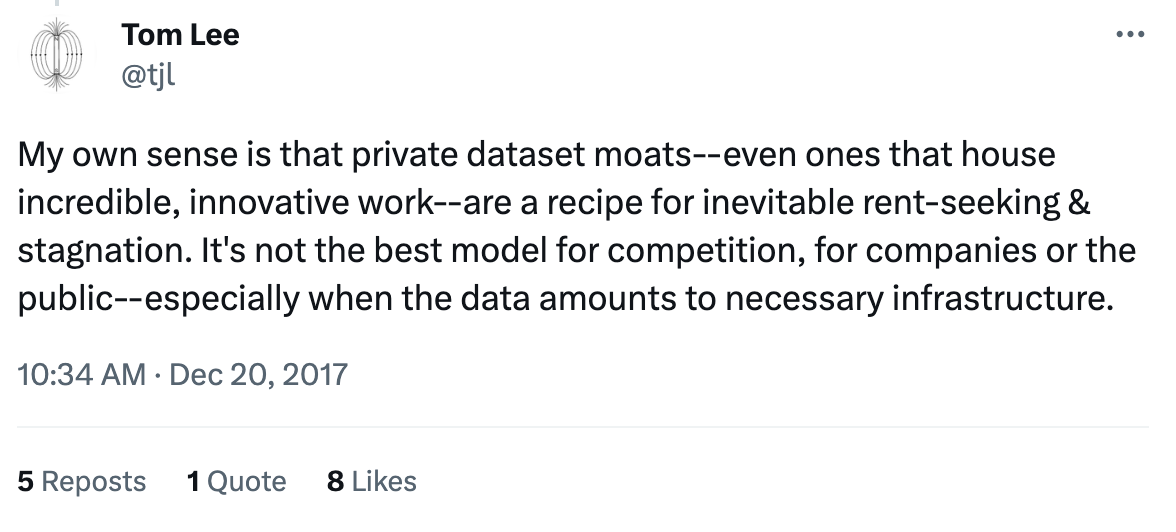
I think I just need to take a minute,
let this glimpse of the current state of things sink in,
take a deep breath,
and then flex my imagination.